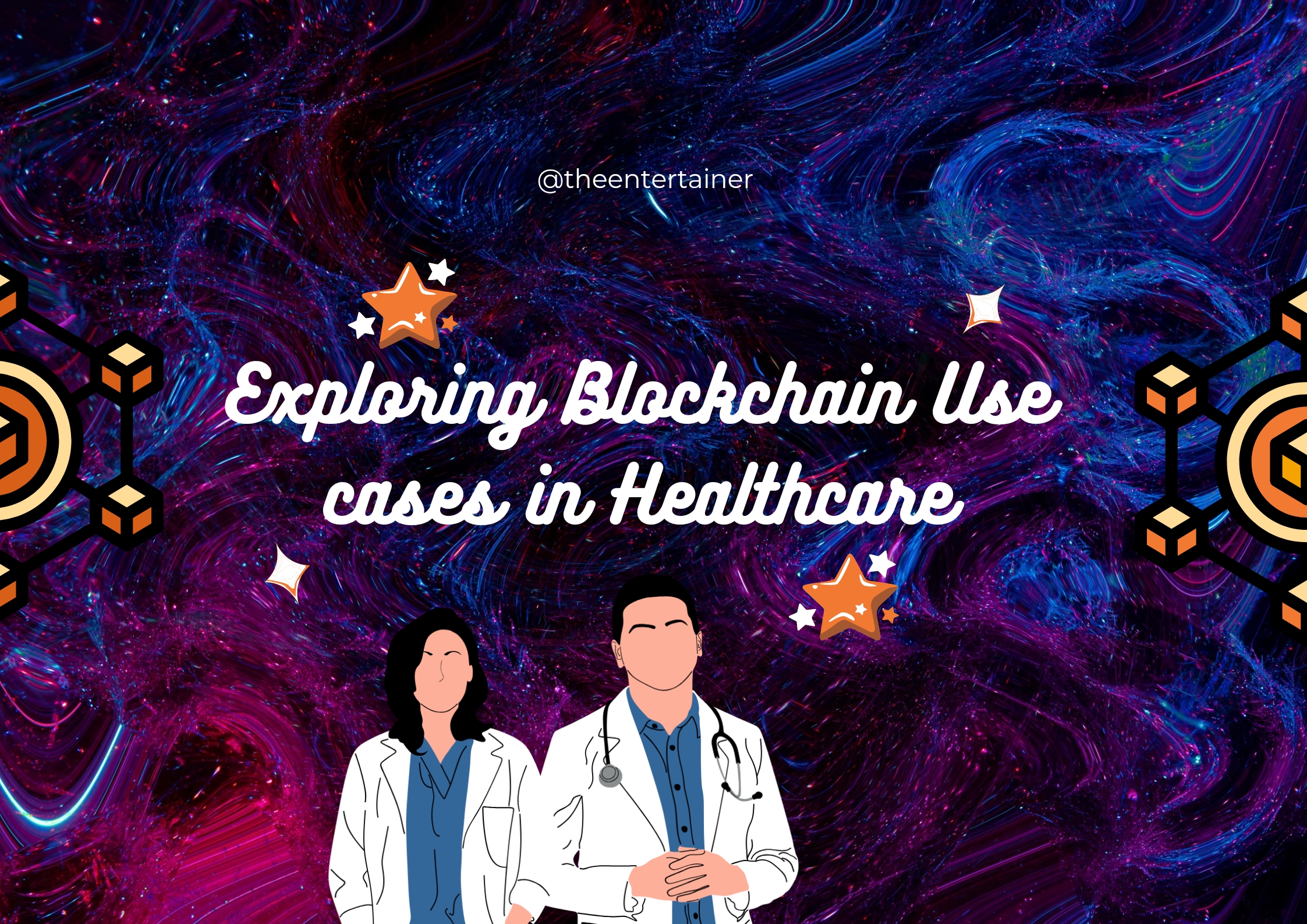**Introduction**
Blockchain technology, renowned for its association with cryptocurrencies like Bitcoin, is increasingly gaining attention for its potential in revolutionizing various sectors, including healthcare. Its inherent features offer promise in secure data management and transparency. This article explores the viability of integrating blockchain in healthcare, examining its benefits, potential use cases, and the challenges it faces.

[Canva](https://www.canva.com/design/DAF5-OPvKC8/_uGaPfMA1trtYq-uOrvURg/edit?utm_content=DAF5-OPvKC8&utm_campaign=designshare&utm_medium=link2&utm_source=sharebutton)
**Benefits of Blockchain in Healthcare**
Blockchain's attributes, such as immutability and decentralized architecture, make it suitable for safeguarding medical data. Its peer-to-peer structure ensures synchronized patient records across different entities, enhancing data security and integrity. While public blockchains are common in cryptocurrencies, healthcare applications typically utilize private networks managed by authorized nodes.
**Potential Advantages**
1. **Increased Security**: Blockchain ensures data integrity and reduces administrative costs by eliminating centralized servers. Its decentralized nature mitigates vulnerabilities to technical failures and external attacks, crucial for safeguarding sensitive healthcare information.
2. **Interoperability**: Blockchain facilitates seamless data exchange among healthcare providers, overcoming technological disparities in storage systems. Authorized parties can access a unified database, streamlining collaboration and improving patient care.
3. **Accessibility and Transparency**: Patients gain greater access to and transparency over their health information, with blockchain enabling validation of document changes, reducing errors and falsifications.
4. **Reliable Supply Chain Management**: Blockchain offers a secure method for tracking pharmaceuticals, combating drug counterfeiting, and ensuring proper storage and shipping conditions.
5. **Insurance Fraud Protection**: Immutable blockchain records help prevent medical insurance fraud, saving costs for healthcare systems and ensuring accurate billing practices.
6. **Clinical Trials Recruitment**: Blockchain enhances clinical trial recruitment by leveraging medical data to identify suitable candidates, improving enrollment and data integrity during trials.

[Freepik](https://www.freepik.com/free-vector/team-crisis-managers-solving-businessman-problems-employees-with-lightbulb-unraveling-tangle-vector-illustration-teamwork-solution-management-concept_10613678.htm#query=Challenges&position=3&from_view=search&track=sph&uuid=6a9873bc-e48c-4796-b6fe-319d73c6761a)
**Challenges of Integration**
1. **Compliance**: Adhering to existing data regulations like HIPAA poses a challenge for blockchain adoption in healthcare, necessitating customized solutions with enhanced privacy features.
2. **Initial Costs and Speed**: High initial investments and slower transaction speeds compared to centralized systems hinder widespread blockchain adoption, especially for large-scale databases.
3. **Educational Gap**: The complexity of blockchain technology requires continuous training and education for healthcare professionals to ensure proper implementation and regulatory compliance.
4. **Scalability**: Managing the vast amount of healthcare data presents scalability issues for blockchain networks, impacting transaction times and operational costs.
5. **Data Standardization**: Lack of uniform data protocols complicates information exchange and interoperability within blockchain networks, requiring solutions to maintain data integrity without sacrificing important details.
**Closing Thoughts**
While blockchain holds immense potential for improving healthcare, addressing challenges such as regulatory compliance, scalability, and educational gaps is crucial for successful integration. Collaboration among stakeholders is essential to harness blockchain's benefits while navigating complexities in the healthcare sector.